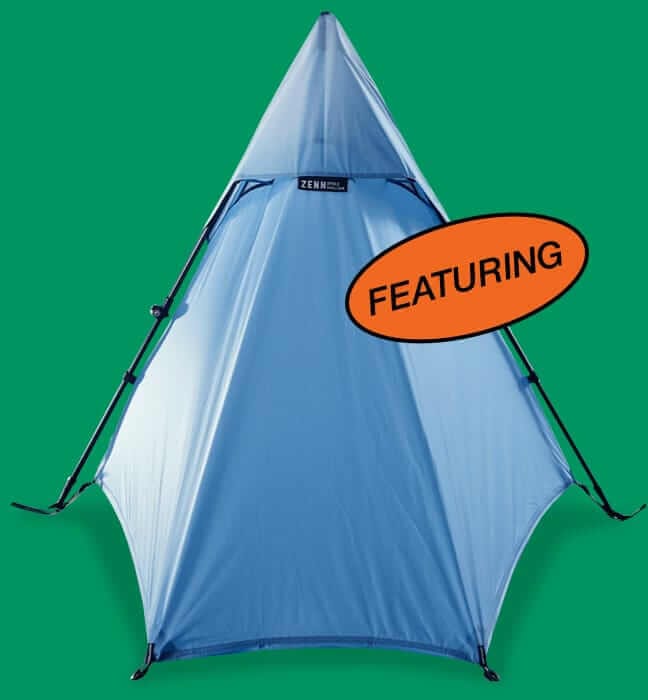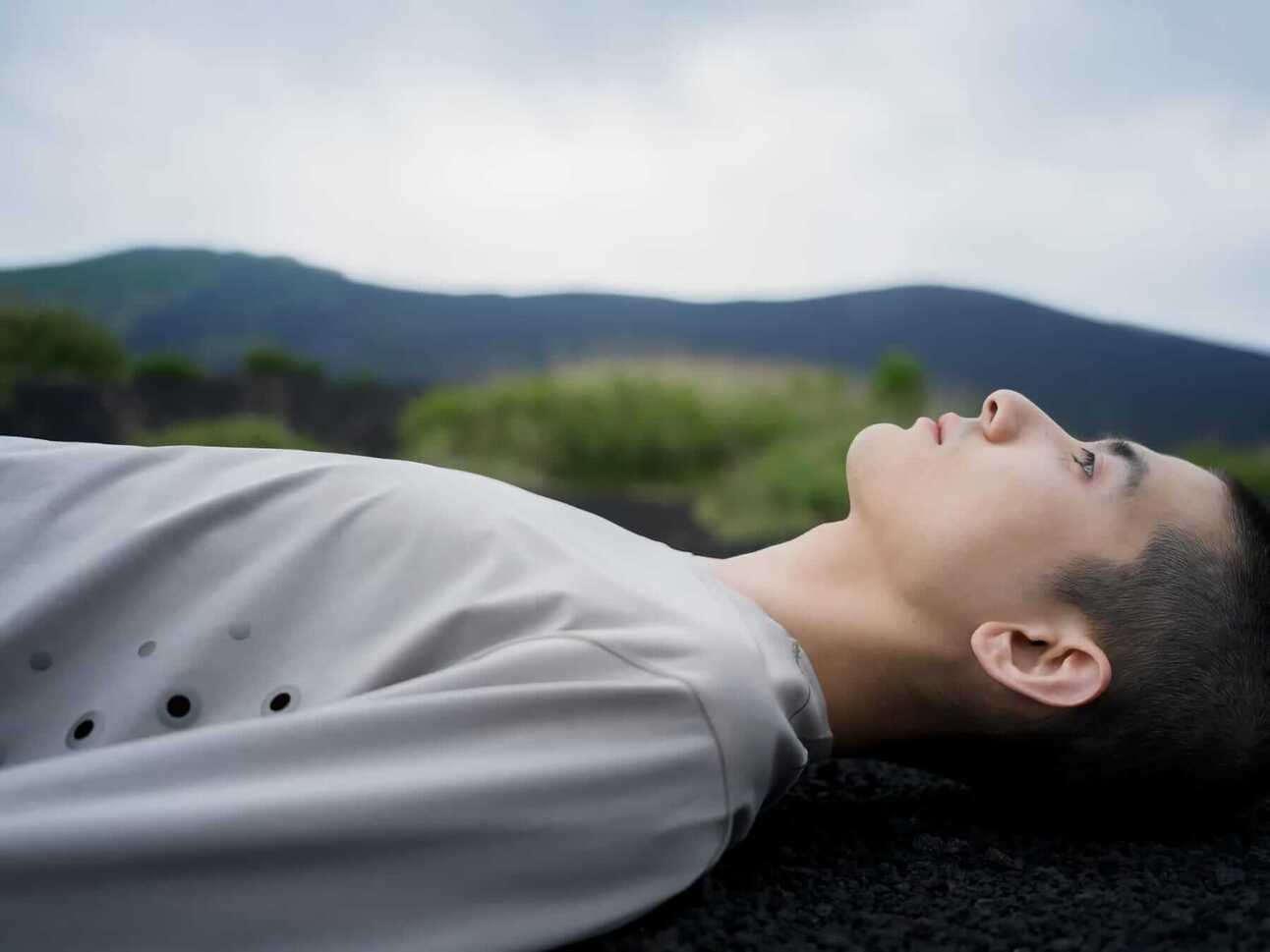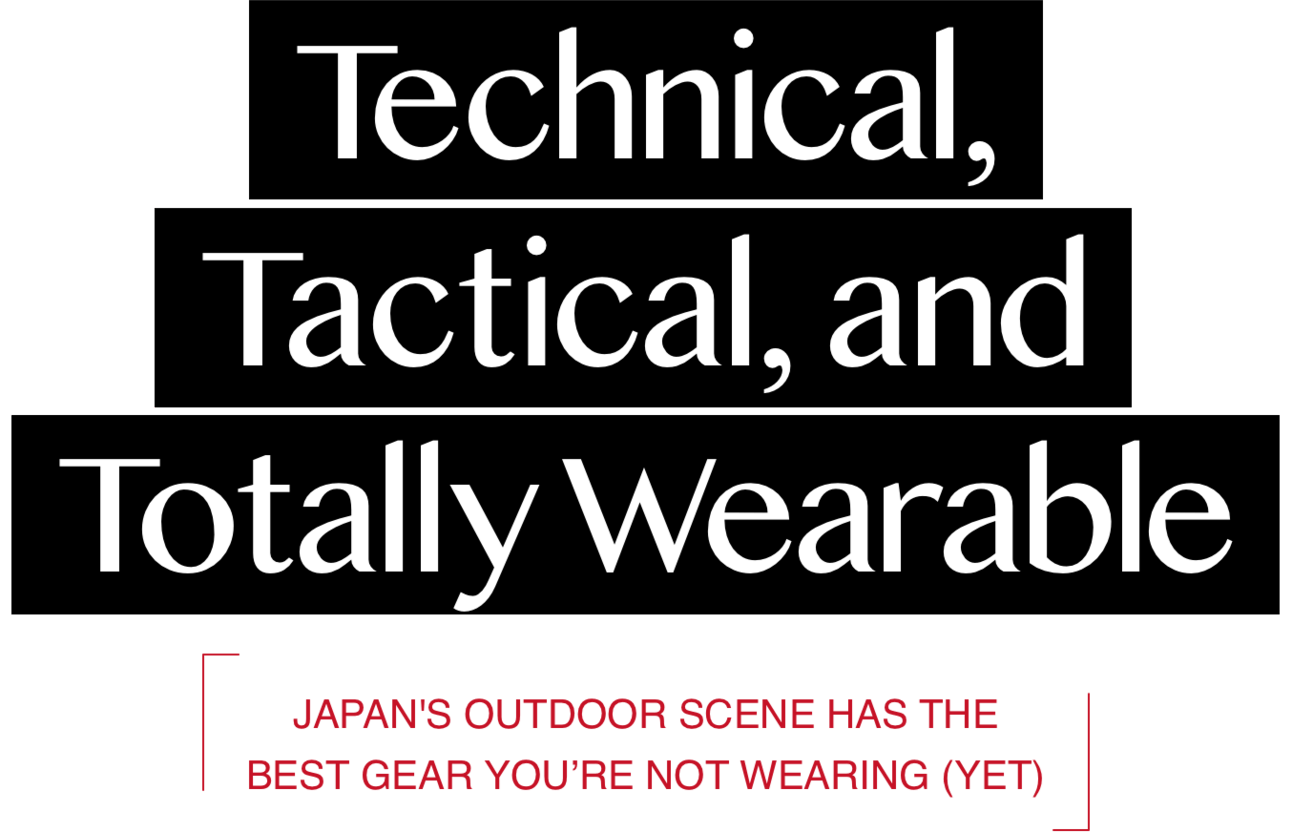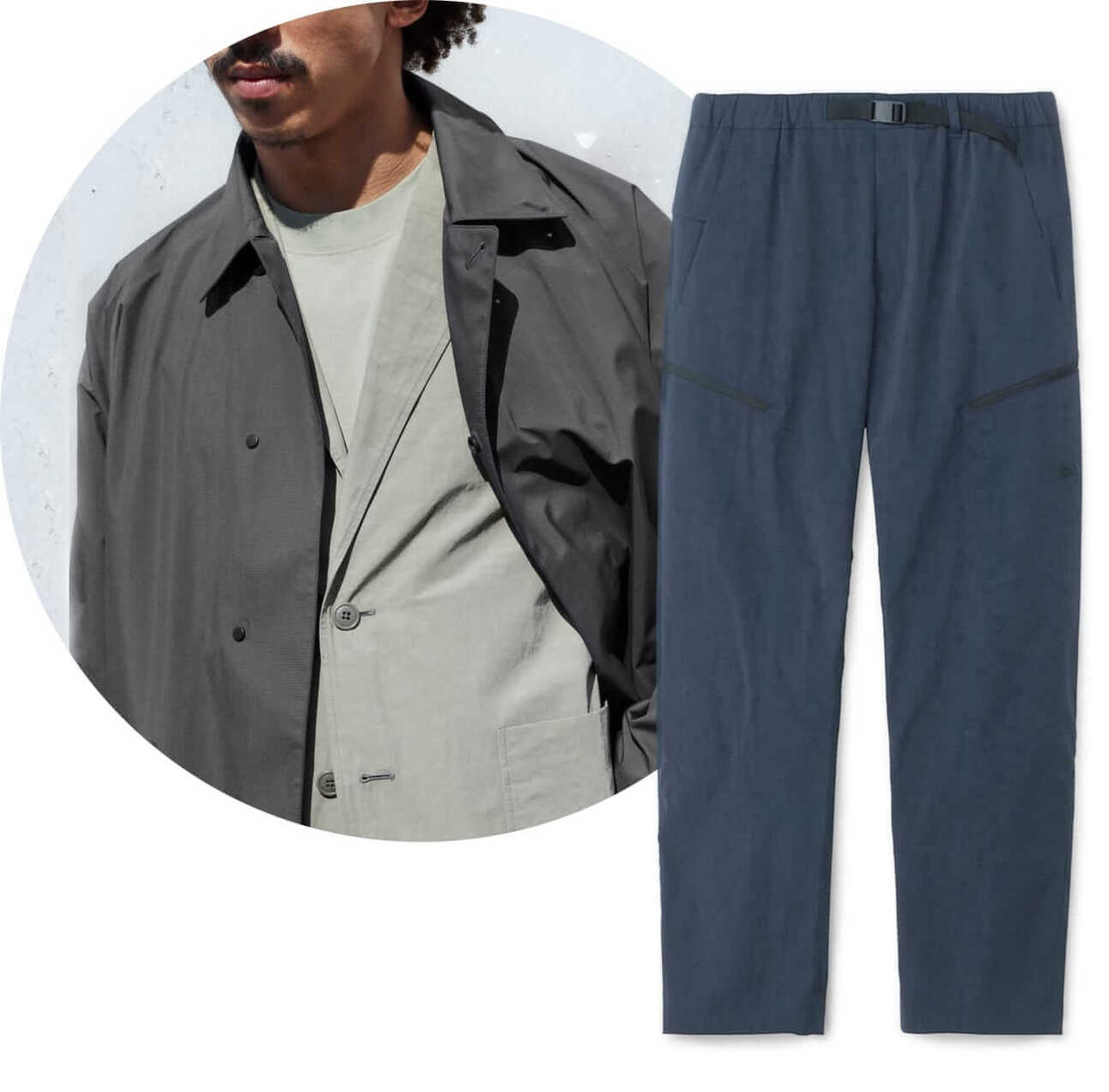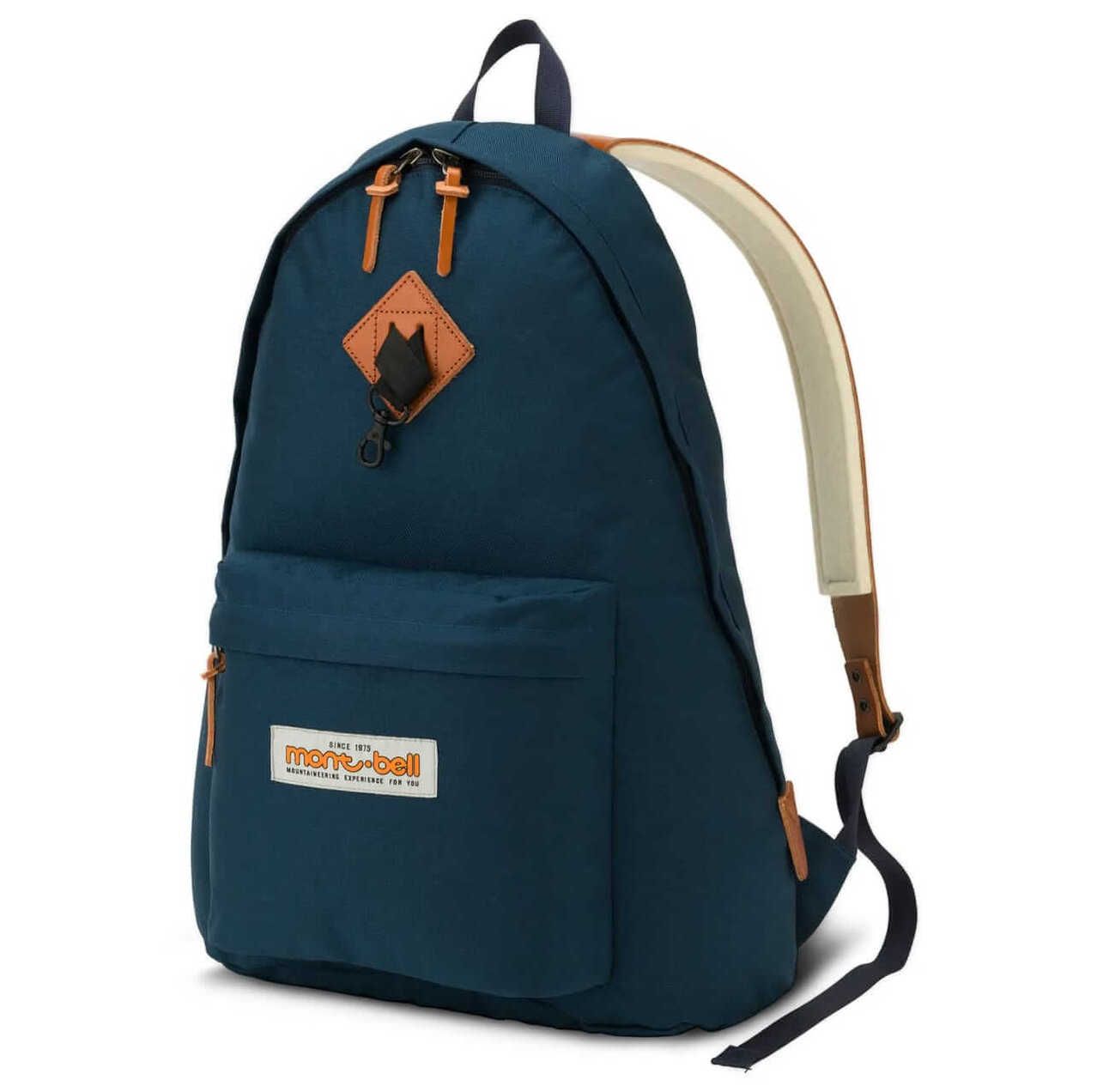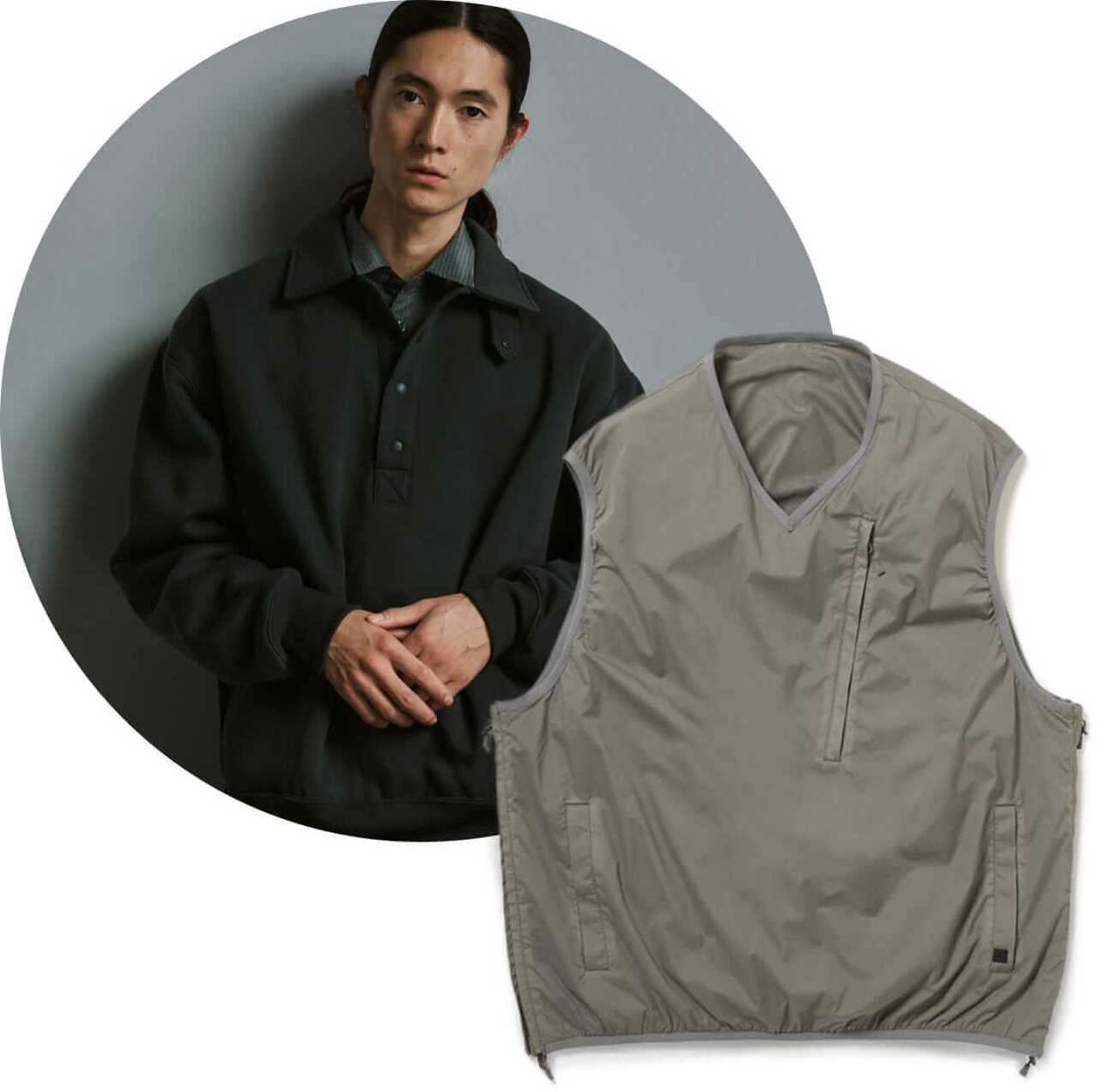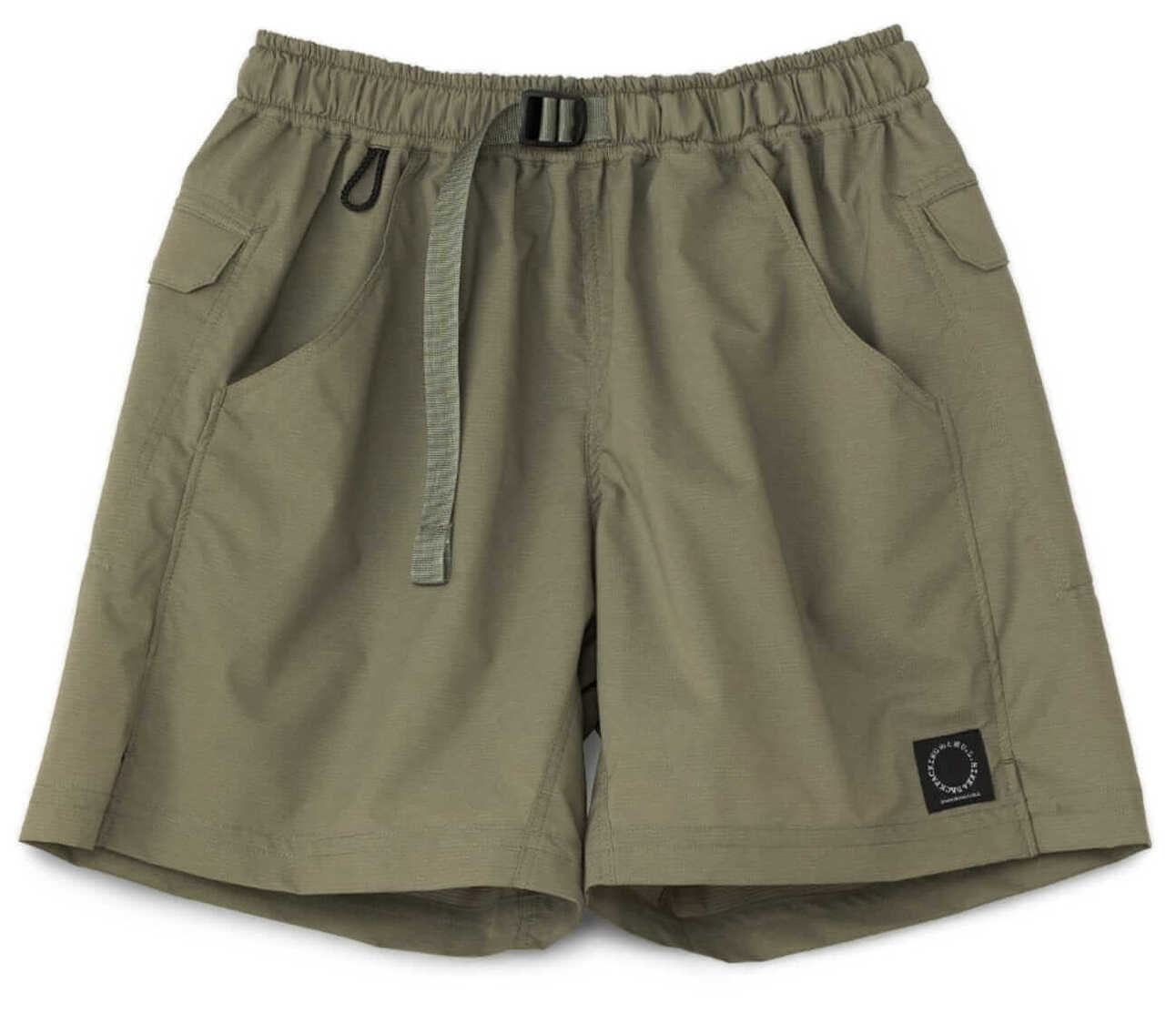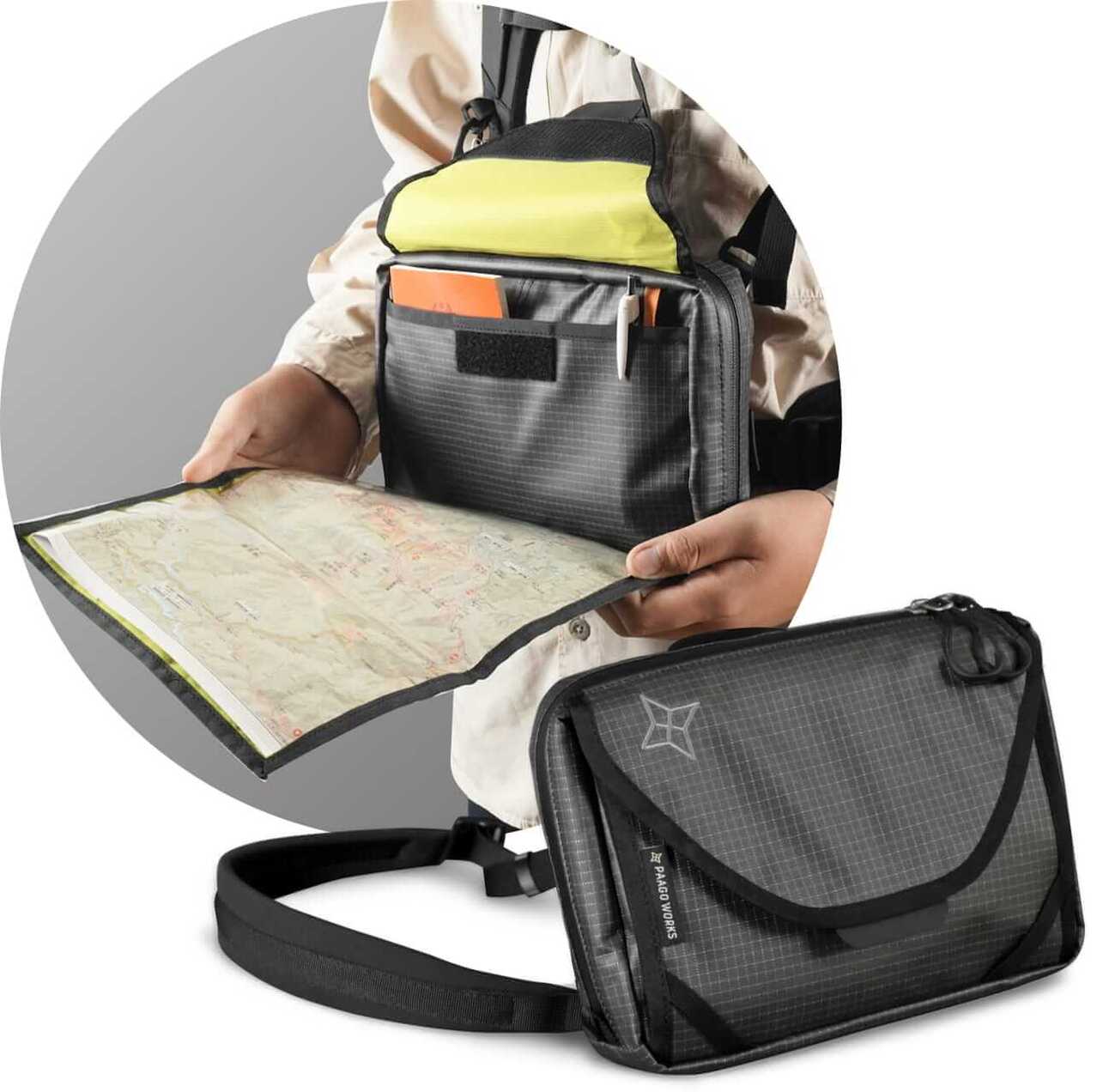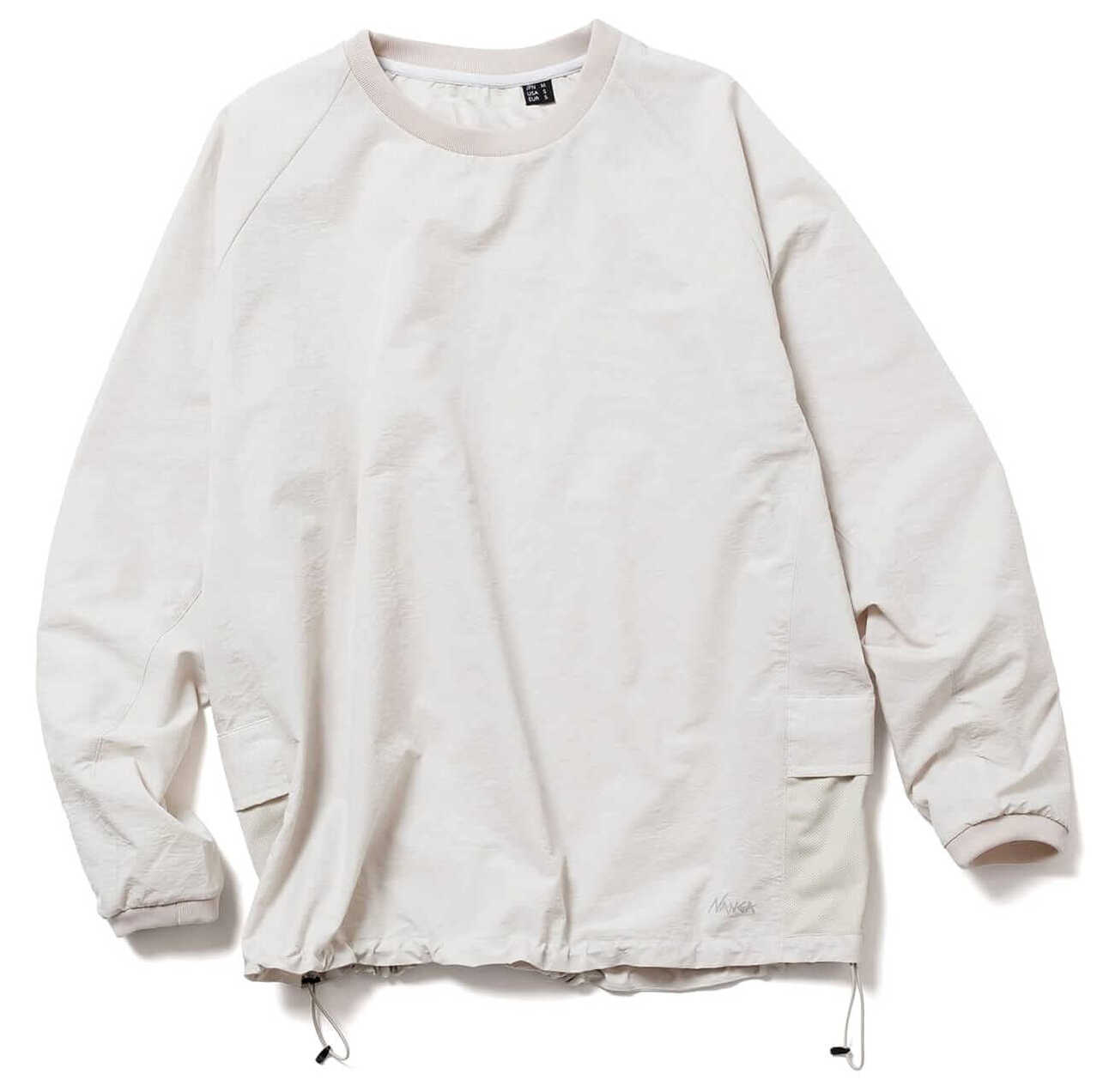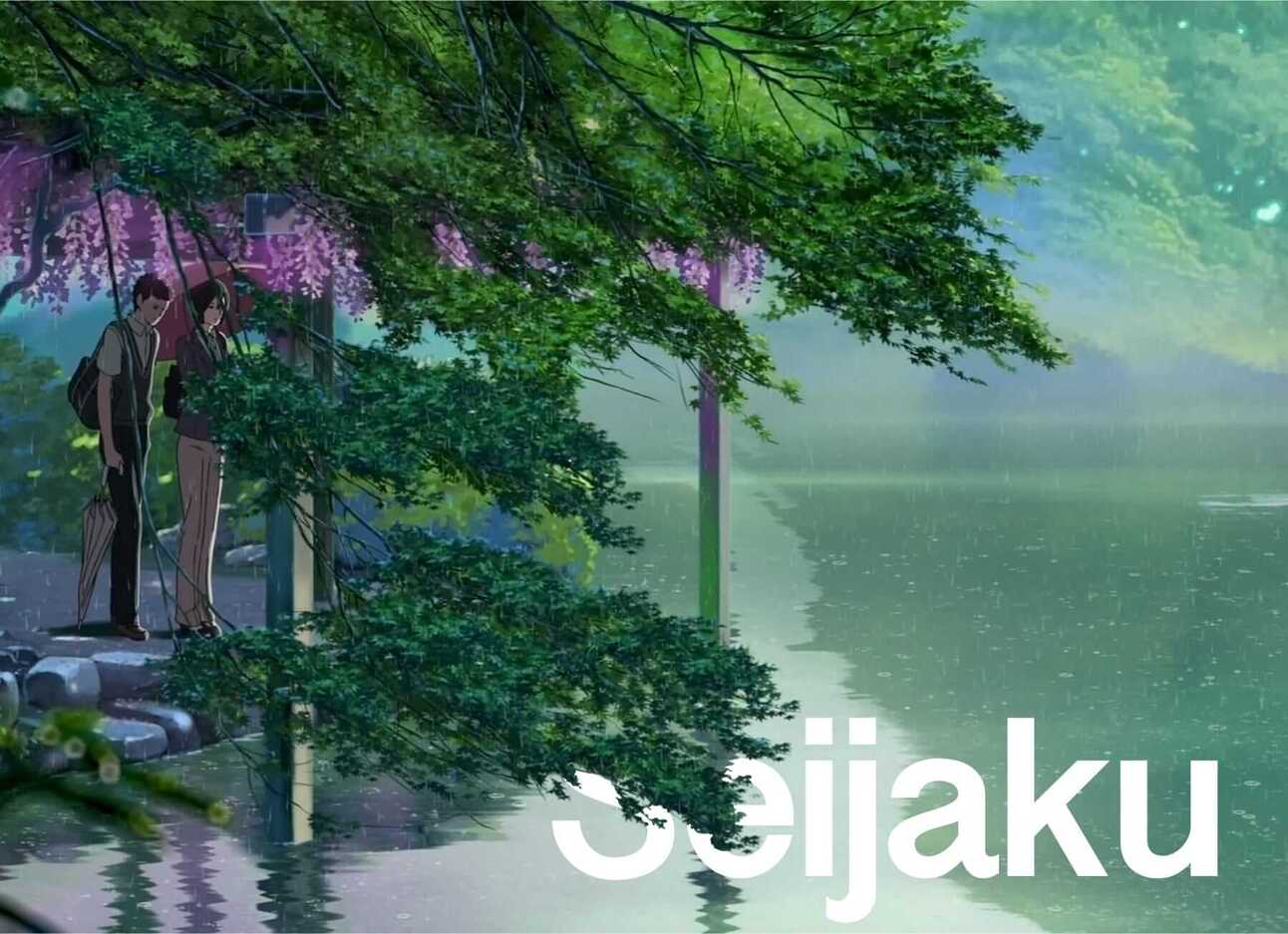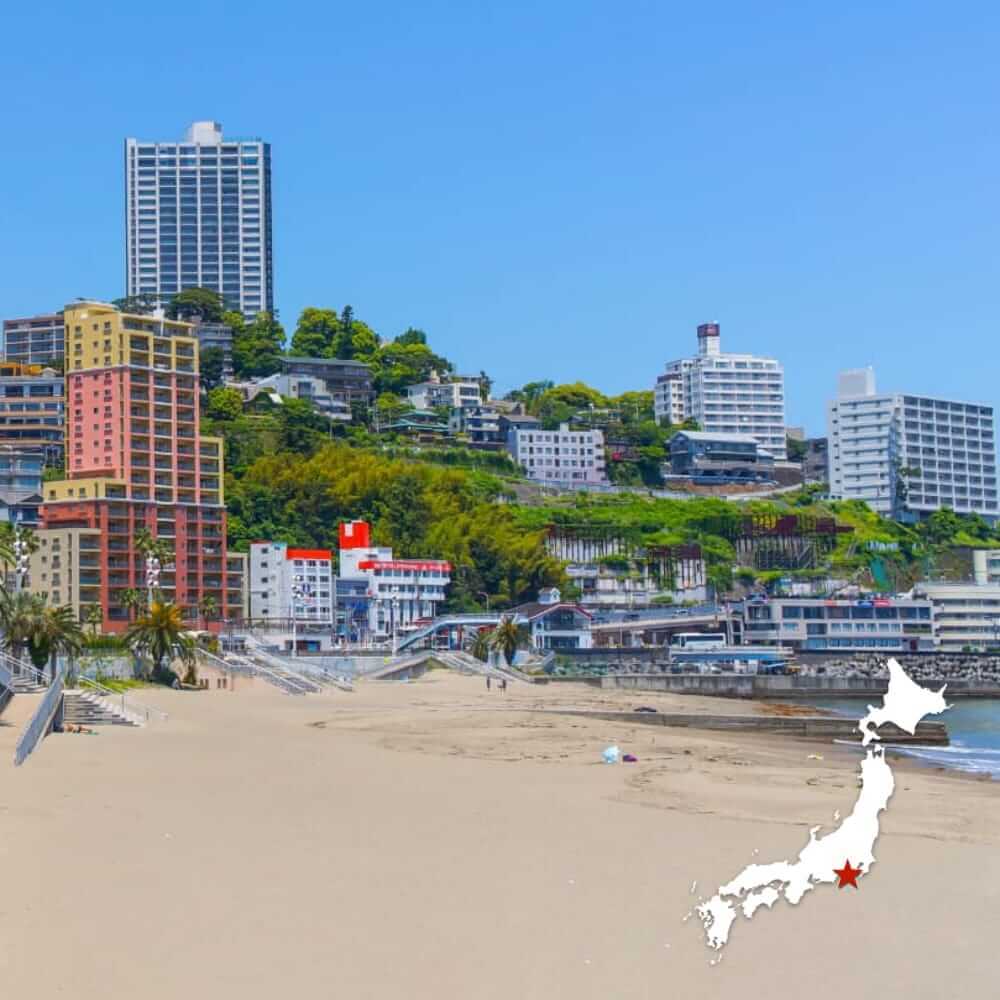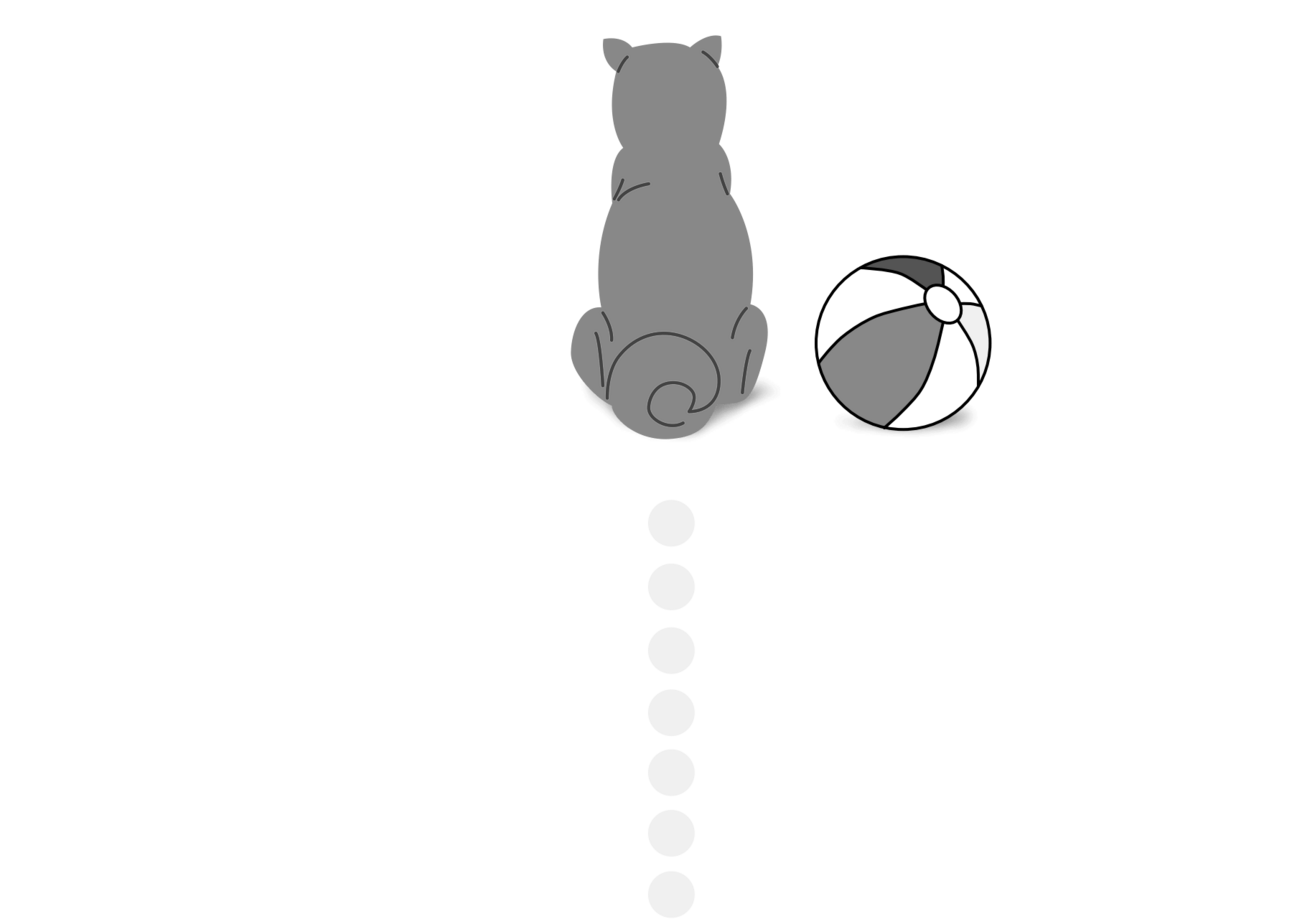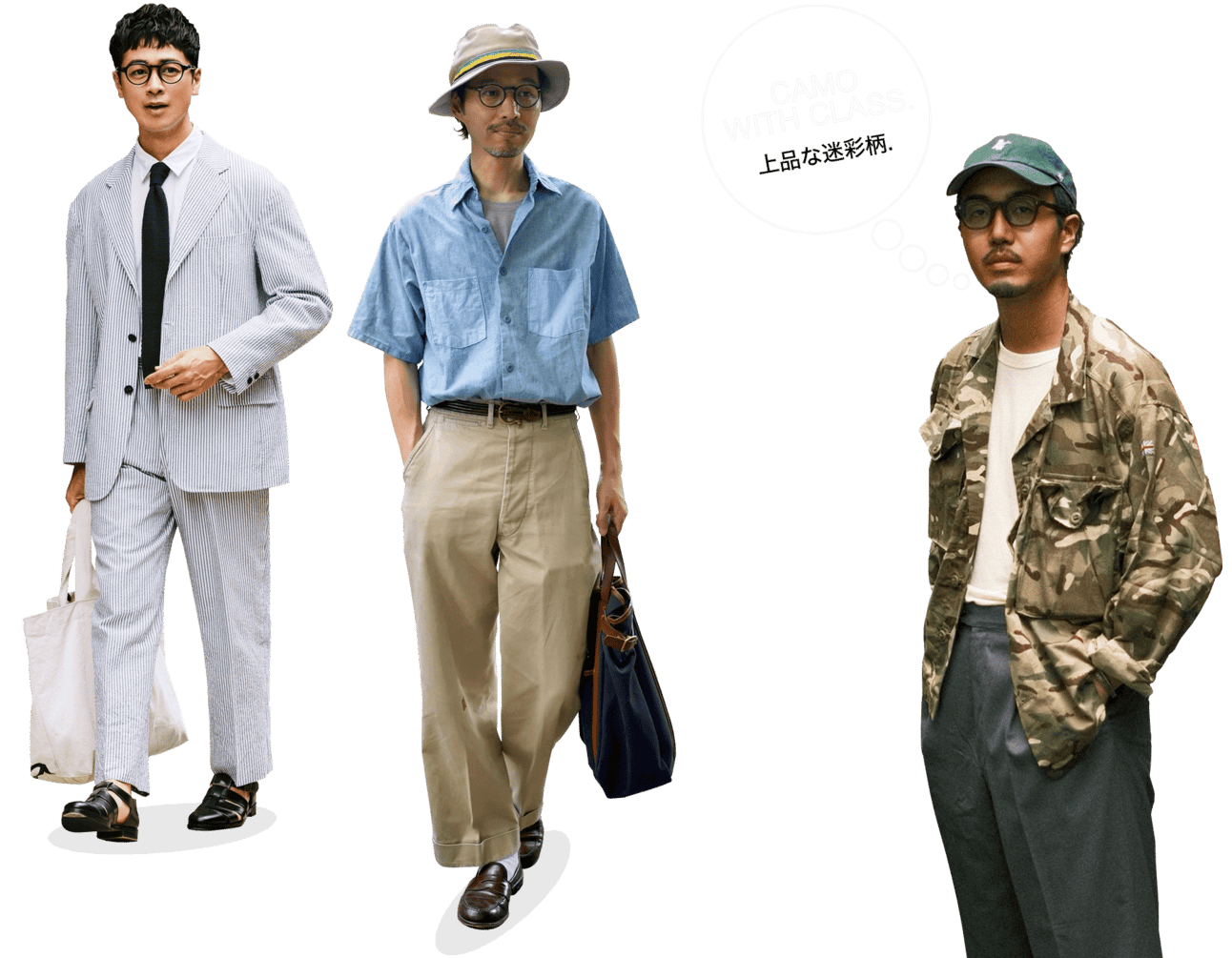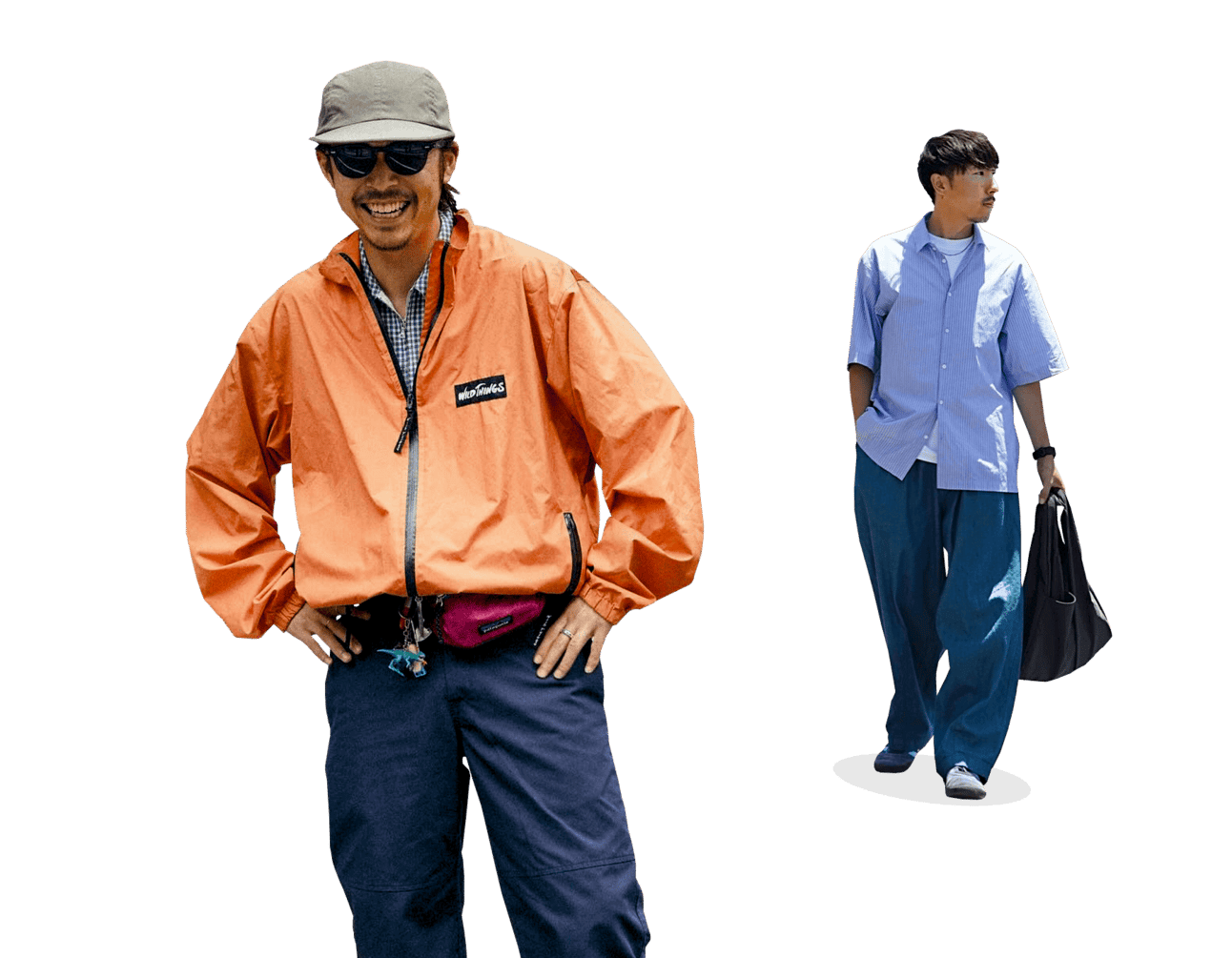- Bandana
- Posts
- Issue #33
Issue #33
The Japanese Outdoor Brands You Should Know
Words by Cory Ohlendorf | Photography courtesy
When it comes to performance gear with real-world style, Japan does it differently. There’s a meticulousness here—an obsessive attention to detail, quality and form—that elevates outdoor gear well beyond the trail. While many international brands focus on extremes (summiting, shredding, surviving), Japan’s outdoor scene is rooted in harmony with nature. It’s about connection, comfort and simplicity. It’s gear designed for real people who hike, camp, fish, and explore without sacrificing aesthetics. Because Tokyo salary men here love these brands just as much as the rugged outdoorsmen and nature nerds.
Japan is full of juxtapositions with ancient temples amidst modern skyscrapers. It’s no wonder that these brands have cultivated clothing and gear that effortlessly merges the urban landscape with the great outdoors—a movement that’s gained plenty of traction in the West, thanks to gorpcore.
Seeing how many Japanese brands embrace the outdoors, and seeing guys dropping serious money on this gear, I wondered how often people got out of the city to really use this stuff? Turns out, far more than I originally thought. There’s been a real rise in “work-from-campsite” culture. People are packing up solar chargers, Wi-Fi routers, and foldable desks to do their work and conduct meetings in the forest. It’s not a gimmick—it’s become a preferred way of blending productivity with peace. And getting some great shots for the ‘gram. | 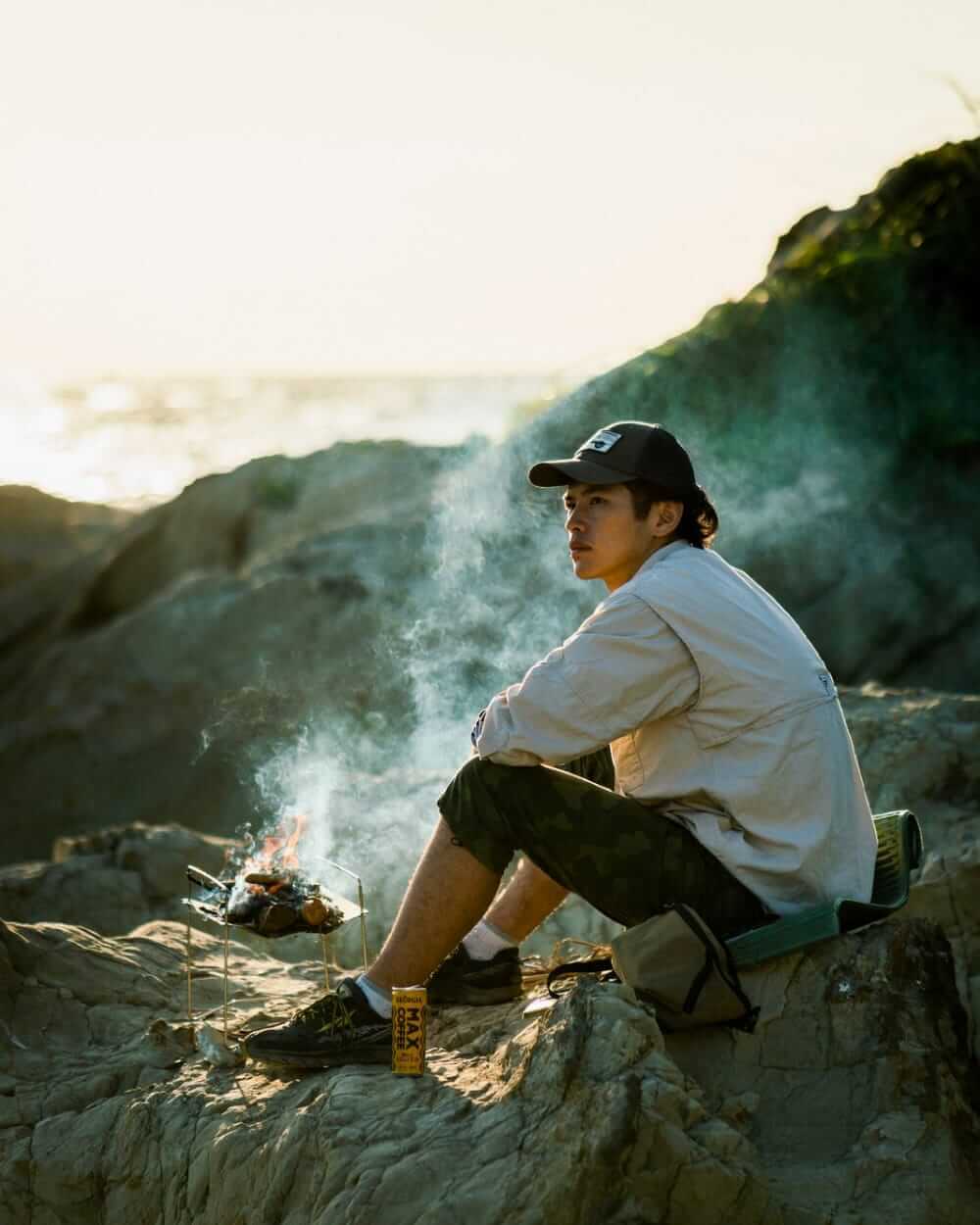 |
Of course, labels like Snow Peak come to mind, as leaders in this field. But here are six lesser known Japanese outdoor brands that strike that ideal balance of function and form—and deserve a place in your closet (or kit), whether you're a minimalist hiker, city cyclist, or just like the idea of technical outerwear that doesn’t look overly “outdoorsy.”
Goldwin» The Vibe: Heritage meets high-performance minimalism Originally a ski brand from the Japanese Alps, Goldwin has quietly evolved into one of the most fashion-forward technical labels in the world. The designs are sleek and minimalist, rooted in performance but refined enough to wear in the city. Think softshell jackets with sculptural lines, GORE-TEX parkas in earth tones, and merino base layers that feel more like luxury loungewear. They also design gear for The North Face Purple Label, so you already know they understand the intersection of utility and street style. |

Montbell» The Vibe: Japan’s go-to for ultralight, reasonably-priced adventure gear Founded by a mountaineer in Osaka in 1975, Montbell is Japan’s REI—if REI were more obsessed with weight savings and packability. Their down jackets and sleeping bags are cult favorites among minimalist trekkers, but the appeal goes beyond the backcountry. Montbell’s layering pieces and functional accessories are humble, durable, and often shockingly affordable. It’s the kind of gear that doesn’t beg for attention, but delivers every time you put it on. California daypack, $185.90 |

Daiwa Pier39» The Vibe: Proper fishing roots with a streetwear upgrade Daiwa’s been a giant in the fishing world for decades. But lately, they’ve turned heads off the water too—especially with Daiwa Pier39, a lifestyle offshoot that mixes angler functionality with relaxed, city-ready silhouettes. Led by Shinsuke Nakata, a former Beams employee, the line is inspired by military and Americana styles. He successfully translated Beams expertise in American casual and traditional styles into the field of outdoor apparel. Think pocket-packed fishing vests worn over oversized oxford shirts, or wide-leg tech pants cut from breathable fabrics. It’s all quietly technical, but styled for everyday exploration. You don’t have to know a thing about fly reels to get hooked. Tech reversible vest, $168 |

Yamatomichi» The Vibe: Hyperlight hiking gear, made in small batches This is the cult brand for serious Japanese hikers. Based in Kamakura, Yamatomichi makes ultralight packs, pants, and tops using cutting-edge fabrics like Alpha Direct, Pertex and their own “5-Pocket Pants” material. But this isn’t just about grams and grams—it's about thoughtfulness. The designs are considered, the fits are dialed, and the gear is made in small quantities with care. It’s Japanese minimalism, taken to the mountain. Light 5-pocket short, $95 |

Paago Works» The Vibe: Modular, playful gear with a DIY spirit Paago Works feels like the most Japanese of the bunch—in the best way. Their packs and accessories are full of unexpected details and modular tricks, like magnetic closures, customizable pockets, and quirky shapes. Their best-known bag, the “Rush” running vest, is a favorite of urban trail runners and bike commuters alike. If you like gear that sparks joy (and feels a little bit like a Transformer), this is your brand. Pathfinder bag, $63.75 |

Nanga» The Vibe: Down specialists with a growing cult following Nanga started out making sleeping bags, and they still do—very, very well. But recently, they’ve broken into the apparel space with a line of down jackets, vests, and outerwear that’s gaining traction with the style set. All of their insulation is sustainably sourced, and the construction is done in Japan. Lately, their down jackets and outerwear have been spotted on fashion-conscious outdoorsmen thanks to their understated look and excellent warmth-to-weight ratio. DotAir comfy tee, $90 |
If you want the look of a high-end Japanese outdoor brand on the cheap, you won’t find a better deal than these breezy wide-leg cargo pants from the UNIQLO:C line. They’re the kind of flowy, relaxed pants you see a lot of stylish guys in Tokyo wearing. Especially this time of year. They have a traditional tack button at the waist, feature two gusseted pockets at the thighs, and a generous opening at the legs. They look as good with a pair of slim sneakers and a T-shirt as they do with a drape-y camp collar shirt and some loafers.
Get It | $49.90 by UNIQLO |
(ILLUSTRATION: The Garden of Words)
The Japanese have a word, seijaku (静寂), which roughly translates to mean silence and stillness—a type of tranquility and satisfaction. It encompasses a deeper meaning beyond just the absence of sound, suggesting a profound sense of calm and peace, often found in quiet contemplation or nature. It's a state of active calm, where one is present, aware, and focused, even amidst activity or mental activity.
AtamiThere are plenty of beaches easily accessible from Tokyo. Japan’s official swimming season typically begins mid-July and continues through August. Atami is a popular beach town known for its covered arcades, offering an atmospheric slice of Japanese Showa life. Get There: |
 |
HayamaJust down the coast from lively spots like Zushi and Kamakura, this charming town offers a much more relaxed vibe. In the summer, the beachfront comes alive with Umi no Ie—an open-air livehouse that hosts a mix of live bands and DJs, all just steps from the sand. Get There:  |
YugawaraThis small, but friendly town in Kanagawa Prefecture is best known for its soothing hot springs, seasonal plum blossoms, and sweeping views of Sagami Bay. It’s also home to a handful of easygoing hiking trails—like the peaceful Ikemine route—perfect for beginners looking to get outside and explore. Get There: |
That’s all
for this week.

We’ll see you back here next Thursday.
Know someone that would like Bandana? |




